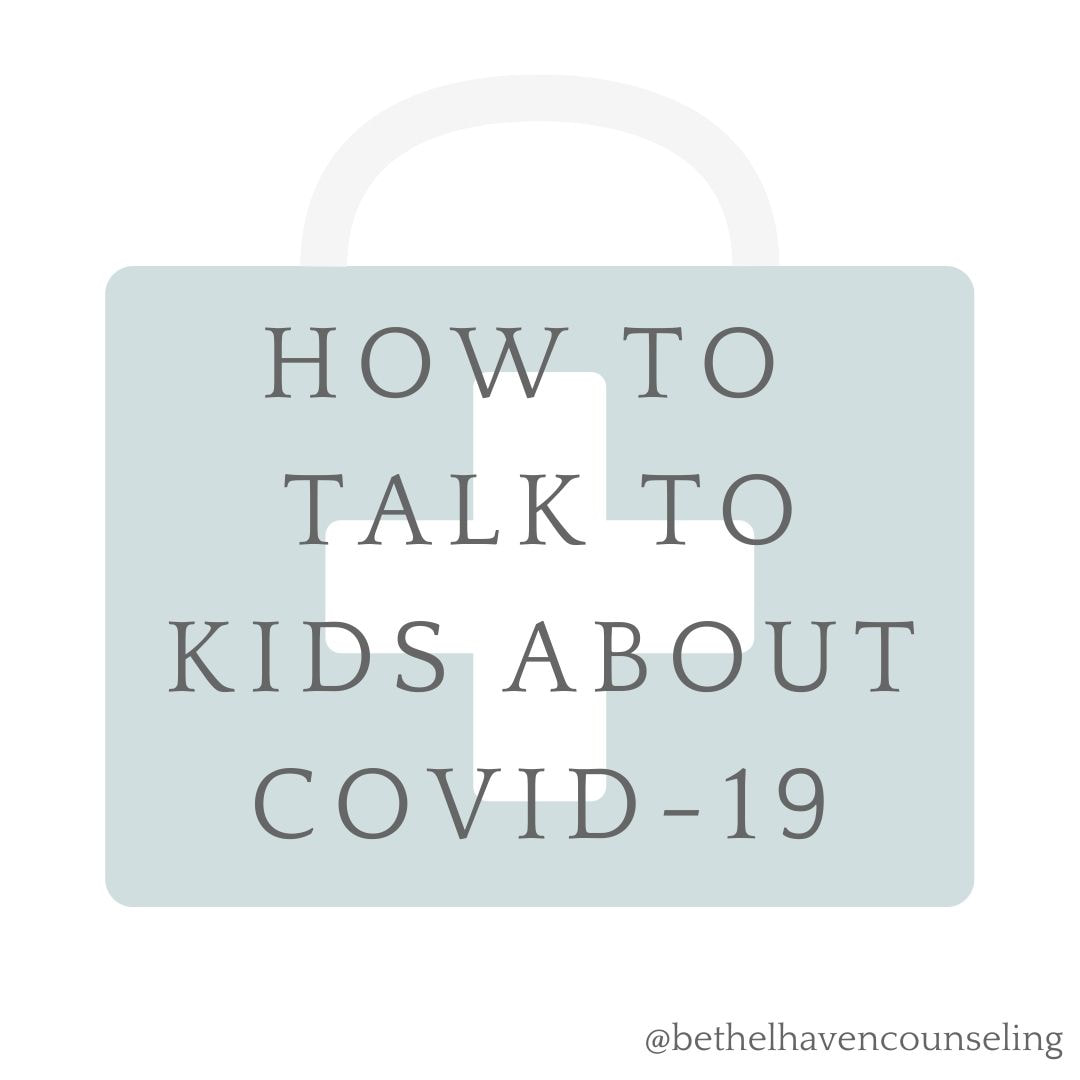|
Watching the news and seeing the talk on social media regarding COVID-19 (coronavirus) is enough to work any adult into a state of anxiety - now imagine how it feels for a child to be hearing and seeing all of this! We’d like to share a few thoughts on how to have conversations with the children in your life regarding the coronavirus to help you navigate this uncertain time 1.CHECK YOURSELF. Before you engage in any conversation about the coronavirus, be sure that you are coming from a place of peace and calm. Children feed off of our emotional state. Your calm demeanor and presence can help your child regulate his or her emotional state - a process known as coregulation. Do what you need to do to cope well and take care of yourself, whether that’s through prayer, meditation, exercise, hobbies, or other healthy habits.
2. BRING IT UP. Don’t be afraid to have a conversation about COVID-19 with your kids. Rachel Ehmke with the Child Mind Institute writes, “Kids worry more when they are kept in the dark.” Bringing up the topic won’t create more fear and worry - it will actually help ease it (if handled appropriately). 3. LISTEN FIRST. Your kids, whether they go to private school, public school, or are homeschooled, have more than likely heard about the coronavirus from classmates, friends, adults, and the media. Start by asking them what they already know. It can be as simple as: “Have you heard anything about the coronavirus?” “What have you heard?” It’s important to listen to their thoughts and feelings, so that you know where to start in addressing their concerns. 4. CONSIDER DEVELOPMENTAL LEVEL. When answering your child’s questions, keep his or her developmental level in mind. If your child is very young (toddler age) chronologically and/or developmentally, keep your language simple and concise. School-age children will be able to understand more, but they think in concrete terms. Therefore, simplicity and clarity are key. It's always a good idea to ask your child to repeat back to you what they heard you say. This helps you assess whether or not your child has understood you clearly. On a related note - avoid watching the news or having intense conversations about COVID-19 while kids are within earshot. You never know what bits of information (or misinformation) they hear and misunderstand. 5. EMPOWER. Teach your kids strategies to help them stay mentally, physically, and emotionally healthy. Our kids’ mental health is strengthened by routine, so try to keep their schedule as consistent as possible. Remind them that when they feel worried, they can talk to you and that you will do your best to help. Teach them tools such as deep breathing and muscle relaxation and use fun activities to reduce anxiety. And of course, reinforce personal hygiene! All of these strategies will empower your kids and give them confidence amidst the coronavirus craziness!
0 Comments
Leave a Reply. |
Bethel HavenWritten by our counselors to help promote your help, hope, healing Archives
June 2021
Categories |

1622 Mars Hill Road Suite A Watkinsville, GA 30677
P: 706-310-9046
[email protected]
Bethel Haven, Inc.
Copyright © 2016

 RSS Feed
RSS Feed
